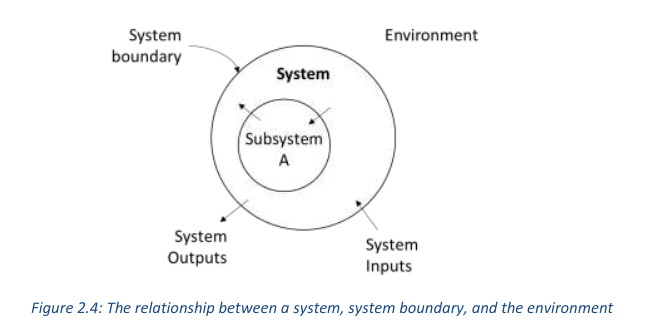📚 Node [[system]]
📓 garden/flancian/system.md by @flancian ️🔗 ✍️
- [[stpa]]
📓 garden/neil/system.md by @neil ️🔗 ✍️
system
A system is an interconnected set of elements that is coherently organized in a way that achieves something.
– [[Thinking in Systems]]
If you look at that definition closely for a minute, you can see that a system must consist of three kinds of things: elements, interconnections, and a function or purpose.
– [[Thinking in Systems]]
So what is a system? Simply a set of things that are interconnected in ways that produce distinct patterns of behaviour – be they cells in an organism, protestors in a crowd, birds in a flock, members of a family, or banks in a financial network. And it is the relationships between the individual parts – shaped by their [[stocks and flows]], [[feedbacks]], and delay – that give rise to their emergent behaviour
– [[Doughnut Economics]]
- A system is more than the sum of its parts.
- Many of the interconnections in systems operate through the flow of information.
- The least obvious part of the system, its function or purpose, is often the most crucial determinant of the system’s behavior.
- System structure is the source of system behavior. System behavior reveals itself as a series of events over time.
– [[Thinking in Systems]]
most of the challenges that really matter involve systems, for example, energy and global warming; water, food, and population; and health and social justice.
📓 garden/ryan/system.md by @ryan
system

Rendering context...
